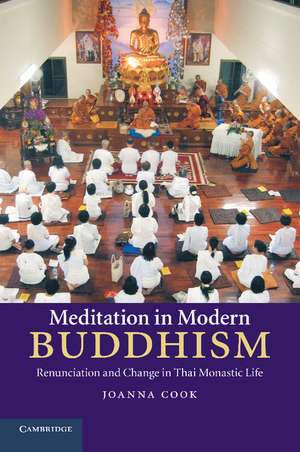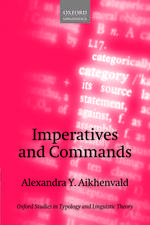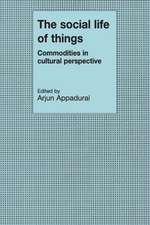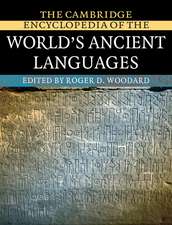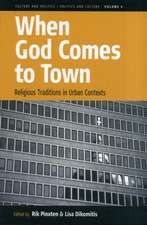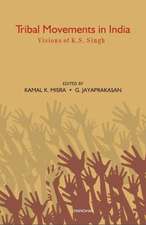Meditation in Modern Buddhism: Renunciation and Change in Thai Monastic Life
Autor Joanna Cooken Limba Engleză Paperback – 9 apr 2014
| Toate formatele și edițiile | Preț | Express |
|---|---|---|
| Paperback (1) | 282.87 lei 6-8 săpt. | |
| Cambridge University Press – 9 apr 2014 | 282.87 lei 6-8 săpt. | |
| Hardback (1) | 693.36 lei 6-8 săpt. | |
| Cambridge University Press – 4 aug 2010 | 693.36 lei 6-8 săpt. |
Preț: 282.87 lei
Nou
54.13€ • 56.66$ • 44.79£
Carte tipărită la comandă
Livrare economică 07-21 aprilie
Specificații
ISBN-10: 1107660556
Pagini: 226
Ilustrații: 10 b/w illus. 1 map 1 table
Dimensiuni: 230 x 152 x 11 mm
Greutate: 0.34 kg
Editura: Cambridge University Press
Colecția Cambridge University Press
Locul publicării:New York, United States
Cuprins
1. Meditation and monasticism: making the ascetic self in Thailand; 2. Sectarianism, centralization and the propagation of meditation; 3. The monastic community: duty and structure; 4. Meditation as ethical imperative; 5. Language and meditation; 6. Monastic duty, mindfulness and cognitive space; 7. Money, mae chee and reciprocity; 8. Hierarchy, gender and mindfulness; 9. Monasticization and the ascetic interiority of non-self; Appendix. Ordination transcript for an eight-precept nun (mae chee); Bibliography; Index.
Recenzii
Descriere
In contemporary Thai Buddhism, the burgeoning popularity of vipassanā meditation is dramatically impacting the lives of those most closely involved with its practice: monks and mae chee (lay nuns) living in monastic communities. For them, meditation becomes a central focus of life and a way to transform the self. This ethnographic account of a thriving Northern Thai monastery examines meditation in detail, and explores the subjective signification of monastic duties and ascetic practices. Drawing on fieldwork done both as an analytical observer and as a full participant in the life of the monastery, Joanna Cook analyzes the motivation and experience of renouncers, and shows what effect meditative practices have on individuals and community organization. The particular focus on the status of mae chee - part lay, part monastic - provides a fresh insight into social relationships and gender hierarchy within the context of the monastery.
